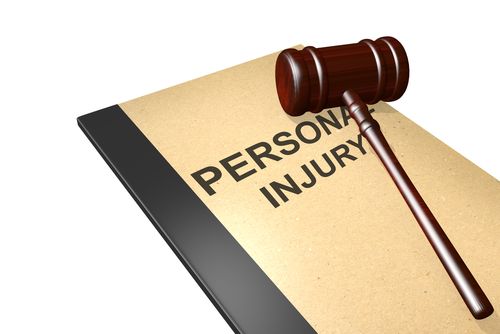
How long you have to file a claim for a truck accident depends on whom you are filing a claim with and what kind of claim it is.
For a free legal consultation, call 516-451-7900
Insurance Claims
In other words, your insurance policy will tell you how soon you have to file with them for them to pay a claim. For example, in New York, your insurance company – and the state’s no-fault auto insurance law – requires you to file your claim within 30 days of the accident. You also have 90 days to file with the Motor Vehicle Indemnification Corporation (MVAIC), which handles claims where the at-fault driver does not have insurance.
Your insurance company must begin investigating your claim within fifteen days of your filing. This requirement does not mean you’ll get an answer in 15 days, just that they have to start looking at the claim. If, on the other hand, you make a third-party claim against the other driver’s insurance company, the state’s statute of limitations for filing a lawsuit governs your case, which is generally three years from the date of the accident in New York.
Official Reports
You have only ten days to report the accident to the Department of Motor Vehicles (DMV) if the collision resulted in injury or damages that exceed $2,000. You should also promptly report the accident, whether it meets these conditions or not, to the local police department.
If the accident injured or killed anyone, you must call 911 from the scene and wait for the police to arrive. You must also report any accident resulting in the injury to or the death of a domestic animal.
Click to contact our personal injury lawyers today
Common Injuries in a Truck Accident
How fast an insurance company will settle with you often reflects the size of the potential settlement. Most companies will settle quickly and fairly for small claims with reasonably easily determinable damages just to get the case off the books. However, if your case involves severe injuries and potential payouts over many years in the future, the company is likely to be far more reluctant to settle quickly.
Here are some of the injuries you may face in a truck accident.
- Neck and Spinal Cord Injuries – Neck and spinal cord injuries can be as relatively simple as whiplash or as devastating as permanent paralysis. The violent twisting and impacts suffered by occupants of a passenger vehicle hit by a truck can bruise or even completely interrupt the spinal cord. This damage to the spinal cord can cause loss of sensation or motor function or even paralysis from the point of the injury down. Because of the catastrophic impact of these injuries on your present and future, the damages are potentially high and can be difficult to calculate. Insurance companies will fight and delay these claims.
- Traumatic Brain Injuries (TBIs) – As with neck and spine injuries, the violence of a truck hitting a car leads to individuals shifting violently inside the vehicle or even getting ejected from it. This violent movement can cause the head to sustain injury when it hits a hard portion of the vehicle or the pavement. Similarly, the debris flying about the car or against which the victim may land can pierce the skull. In either case, a severe TBI can result. Even seemingly mild brain trauma can result in potentially fatal complications because the “mild” TBI designation refers only to the initial presentation of symptoms and not to the overall prognosis. TBIs that medical professionals initially deem mild can still cause serious, long-lasting effects and complications. If you are diagnosed with any TBI, watch for complications or lingering effects. Meanwhile, the other side’s insurance company, aware of the potentially tremendously expensive life-long costs of these injuries, will hesitate to settle with you.
- Burns and Scarring – Because of the weight differential between trucks and passenger vehicles and many trucks carrying hazardous materials, explosions and fires are not unusual in truck/passenger vehicle collisions. Victims can experience severe burns leading to long-term treatment that is both expensive and painful. Burn scars can lead to loss of flexibility and motor function, requiring extensive rehabilitation. In addition, the scarring from burns and the pain can lead to emotional disorders, also requiring long-term treatment. Once again, the potential expense and the uncertainty involved in the costs slow down any potential settlement.
- Internal Injuries – The violence of a truck/car collision can cause significant internal injuries. Some of these injuries can lead to life-threatening damages to internal organs or even cause death. Once again, the insurance company is reluctant to settle because of the uncertainty of the long-term costs.
- Broken Bones – Broken or crushed bones suffered in a collision with a truck can lead to permanent loss of mobility or even amputation. The long-term impact can include rehab, loss of earning capacity, loss of prior occupation, and loss of enjoyment of life.
- Wrongful Death – Because of the violence of a truck/car collision, it’s important to remember that death may result. This sad fact makes the at-fault driver potentially liable in a wrongful death cause of action. Wrongful death actions not only seek coverage for the treatment and pain and suffering between the injury and the death, as well as funeral expenses, it also looks far into the future for lost income, lost inheritance, and the losses experienced by the family members from the loss of the decedent’s care and services.
Complete a Free Case Evaluation form now
Filing a Lawsuit
So, once you’ve filed a claim against your insurance and the at-fault driver’s insurance and made all the required governmental reports, what do you do next?
Talk to a Lawyer – An experienced and knowledgeable truck accident personal injury lawyer will understand the ins and outs of recovering your damages in a truck accident. If you or a loved one were in a truck accident, you probably have serious injuries. You don’t want to spend energy fighting with insurance company claims adjusters and lawyers. Instead, let an experienced truck accident attorney handle dealing with them and advocating for your financial recovery. Attorneys know how insurance companies play the game and can protect you from the worst tactics of insurance companies.
Is a Lawsuit the Best Option – Talk with your lawyers. On rare occasions, insurance companies come up with a good offer early in the settlement process. Of course, if they don’t negotiate in good faith, you can still sue for the violation for up to three years from the accident date. Even in a no-fault state like New York, filing a suit may provide your best option if the other insurance company lowballs you or refuses to settle.
File the Complaint – If you, and your attorney, if you have one, decide to sue, your next step is to file a complaint. This document states everything that happened in the accidents, sets out your damages, and asks for compensation. You want to include everything at this point because changing it gets more difficult as the process goes on.
Do this as soon as possible after the accident to avoid problems with the statute of limitations (generally three years in New York). If you’ve decided you will file suit, you don’t technically have to have a lawyer, but it will make the entire process easier and more effective. Certainly, the insurance company will have plenty of lawyers on its side of the table. An attorney can help make sure your complaint and your documents are as complete and professional as possible.
Serve the Defendant – When you file a lawsuit, you have a legal duty to let the party you are suing know when you file the complaint. This process is “serving” the at-fault driver or “defendant.” Serving the defendant lets them know what claims you will make and prepares the defense for a court case. At the same time that you give the defendant the complaint, the person serving the complaint gives them a “summons,” telling them when and where to come to court.
At this point in the process, the defendant can respond in several ways, depending on what they think about your complaints.
Some of these are:
- Motion for change of venue or judge – filed when the defendant thinks the current judge or location won’t give them a fair result.
- Motion for removal to federal court – usually done where there’s an issue of federal law or when the defendant is from out of state
- Motion to dismiss – the defendant thinks you have the facts wrong, or that even if the facts are right, they don’t entitle you to compensation, or says the statute of limitations has expired.
Unless the judge grants one of the motions, the case will continue.
Discovery Process – The next stage is gathering and sharing evidence. Unlike what you’ve seen in TV and movies, surprise evidence isn’t usually a good thing in a court case. The process of exchanging information, called “discovery,” assumes that both sides will put all their evidence on the table. This evidence may include photos of the scene, witness statements, medical records and bills, and expert testimony. These statements are usually made under oath and are “depositions.” Anyone who gives a deposition may be a witness in the case.
Discovery lets each side see the facts of the case and decide how they will proceed. Sometimes discovery can be so clear that one side or the other will settle at this point, believing they have little chance of winning the case. Or the evidence may be so weak that the defendant will make a motion for summary judgment. That is a motion that says, essentially, even if everything the plaintiff (you) says is true, I (the defendant) still don’t owe them compensation. If the judge agrees, they will dismiss the case.
Go to Trial – If there is still no settlement after all this, the case will eventually go to trial. On average, this will take about 2 years from your first Court conference, but sometimes as long as five years or more, depending upon the complexity of the case. Once the trial begins, you and the defendant (or your attorneys) will present evidence and take testimony from the witnesses. Each attorney gets the chance to argue their side of the case. Then, in a bench trial, the judge decides who wins. In a jury trial, the jury decides the winner. You can still settle until the judge or jury renders a verdict.
How a Truck Accident Attorney Can Help
In this process of reporting your claim, negotiating a settlement, filing a lawsuit, and winning or losing a lawsuit, you are likely to do better with an attorney in your corner.
Insurance companies only profit if they take more in premium dollars than they pay out in benefit dollars. That’s why their attorneys and claims adjusters are experts at paying you the lowest possible claim they can. They are the friends and advocates of the insurance companies. They are not your friends, not your advocates.
Litigation is a complicated process, with pitfalls around every turn in the process. You certainly always have the right and privilege to represent yourself in court. But even lawyers who represent themselves get told a lawyer who represents himself has a fool for a client.
An experienced truck accident lawyer has been on this journey before. These lawyers know what they’re doing, and almost as important, they know what the other side is doing and why they’re doing it.
When a truck accident may have taken you to the lowest point of your life, physically and emotionally, why waste your energy doing something that a lawyer does so much better? Let a skilled truck accident lawyer champion your claim.








